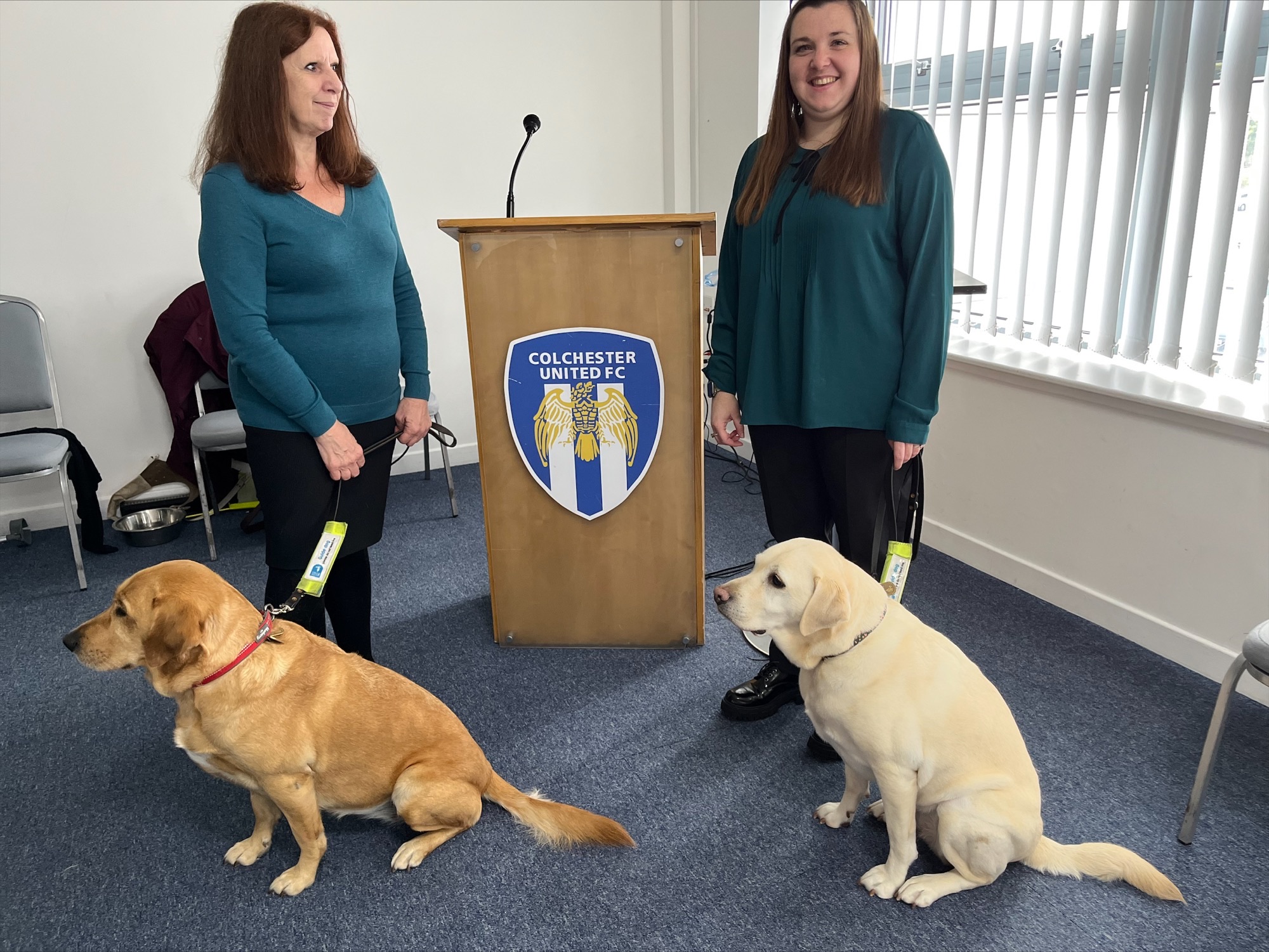Essex Sight Loss Council joins AIS Workshop
Last week, Essex Sight Loss Council attended an Accessible Information Standard (AIS) workshop in Colchester. The workshop was organised by Healthwatch Essex to further embed AIS across health organisations in the area.
Essex Sight Loss Council (SLC) joined representatives from RNIB, the NHS, and local sector partners, in contributing to the event.
Essex SLC members Sam Fox, and Annette Bodsworth, shared their lived experience of the difficulties faced by blind and partially sighted (BPS) people. If implemented fully, the AIS would allow BPS people to access their medical records independently.
Sam and Annette went on to deliver practical exercises for delegates. These were aimed to highlight the difficulties in receiving information in an inaccessible format. Engagement during the workshop was high with many delegates pledging to do all they can to improve the experience for BPS patients.

Essex SLC members Annette Bodsworth, with Samantha Leftwich, Essex SLC Engagement Manager
Samantha Leftwich, Engagement Manager for Essex SLC, said:
“We are aware that this process is going to take some time to imbed. This workshop has been vital in ensuring the voices of blind and partially sighted people are heard and recognised. I am optimistic that after today, changes will be made”.
Sam Fox, Essex Sight Loss Council member said:
“As far as I know, this is the first time that such a wide cross section of people within the NHS has met to talk about the Accessible Information Standard in Essex. We are so pleased that NHS professionals now have a clearer understanding of the AIS, and the impact non-compliance has. We want to convey the enthusiasm that all members of the working group have and hope that everyone will move forward in making changes.”
Dan Potts, Engagement Manager for Healthwatch Essex, added:
“This is a topic that Healthwatch Essex and its volunteers are very passionate about. Using lived experience scenarios, putting people in the shoes of our forum members is extremely powerful. Developing further understanding of the importance of the accessible information standards, will in turn allow for positive changes to be made to the system, enabling communication and information to be delivered in a way which suits the needs of our community.”

Delegates at the workshop, listening to guest speakers
What is the Accessible Information Standard (AIS)?
NHS England introduced the AIS to ensure all health information is provided in the most accessible format for each patient (e.g., in braille, large print, audio, email). Not having access to accessible health information can cause a range of issues, from missing appointments and not understanding treatments, to even taking the wrong medication.
Unfortunately, our research shows that:
• 90% of the blind and partially sighted people we spoke to were not regularly receiving medical information in their preferred format, with a third saying they never had.
• 51% of NHS bodies reported that they had never engaged people with disabilities as part of their AIS implementation.
Can you help?
We’re keen to continue to work with as many NHS trusts, doctors, nurses and staff as possible to increase awareness of the AIS and ensure blind and partially sighted people can access the healthcare they need.
To support this, download our letter and send it to anyone you know working in the NHS.
As well as containing the links to our films, this letter underlines the huge importance of the AIS to the #health of blind and partially sighted people.
Access and download the letter
Advice for health professionals on implementing the AIS
Thomas Pocklington Trust has created a Professionals Hub which has tips on how staff can apply the AIS and simple adjustments that can support implementation of the AIS. We also share how to best support patients with a visual impairment
Publication date: 06 October 2022

